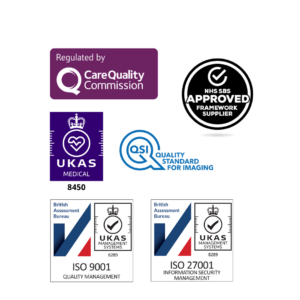I’ll start this week’s blog with a quick note on Omicron. It’s very early days, and as yet, we do not know enough about this new variant. It appears to be more transmissible than the Delta variant; however, we do not know how effective the vaccine will be against it. There have been several suspicious variants before which haven’t turned out to be problematic. Yet, at the moment, we just don’t know with Omicron. We know that the higher the antibody levels to the virus, the better the response. I’ve also read comments from several scientists that the quantity of antibodies can help make up for a degree of change in the virus. Thus, if the effectiveness of antibodies is reduced due to a mutation, having a high antibody level can, to some degree, compensate. The conclusion from this is that ensuring we are all fully vaccinated gives everyone the very best chance in the current situation.
As more evidence emerges over the next few weeks, I will update you; however, remember that we will hear many reports from the media over the next few days and weeks, many with very limited scientific grounding. The facts will emerge, and until they do, I encourage you all to ensure you are fully vaccinated.
Now onto some of the articles in the medical press over the past couple of weeks.
Can good gut health reduce the risk of sepsis?
I’ll kick off with an article in the New Scientist concerning how to reduce the risk of sepsis. Sepsis, an infection of the blood is a life-threatening condition causing over 40,000 deaths in the UK each year. The body’s response to the infection leads to an outpouring of inflammatory chemicals that attack our own body, causing a fall in blood pressure and damage to many organs.
Over the past few years, there has been a great deal of work on identifying the early signs and symptoms of sepsis as prompt recognition saves lives. However, it is still a significant threat.
Last week’s New Scientist (NS) reported on a study from Michael Otto at the National Institute of Allergy and Infectious Diseases in Maryland studying the effect of probiotics to reduce the incidence of sepsis.
They took a group of mice and exposed them to the spores of an inert bacteria, bacillus subtilise. On entering the gut, they become active and encourage other bacteria to grow in the mice’s intestines.
They then exposed the mice to a potentially harmful bacteria, Enterococcus faecalis, that could cause sepsis. When they compared mice exposed to the spores to those who hadn’t been exposed, they only found the harmful bacteria in the blood of the mice who hadn’t been exposed to the spore.
Now, this is a long way from a study in humans; however, it does highlight that our gut bacteria are crucial in preventing certain harmful bacteria from entering our blood. A lot more work needs to be undertaken to work out how this can be clinically useful, but it is yet another example calling out the importance of having a diverse range of bacteria in our guts.
Can early life depression lead to physical problems later on?
Next to a study in The Lancet by Jorge Arias-de la Torre et al., investigating whether or not early-life depression can lead to physical problems later in life. It is well known that those with mental health problems tend to have worse physical health, and in some cases, this is quite stark with increases in levels of death from conditions such as heart disease and cancers. The group set out to explore whether or not this pattern is associated with early-life depression.
They used a variety of different databases; the 1958 National Child Development Study and the 1970 British Cohort Study. They included individuals who had completed a depression screen test in their younger years and at that time did not have any physical illnesses.
They studied over 15,800 individuals, of which 4001 had depressive symptoms at the initial screening. They then looked at data from subsequent years. They found that the relative risk of developing physical problems was 1.7 times higher aged 34 years and 1.6 times high aged 42 years in those who experienced depression in early- life.
The team concluded that depressive symptoms in early adulthood is clearly linked with an increased risk of developing physical problems later in life
Why is this important? Mental health has been the Cinderella of health care for many, many years. This study reminds us of a crucial message; the need to take care of the whole of those suffering from mental health. Just focussing on mental health needs is not enough; we need to support complete health and pay close attention to the risks to physical health as well as mental health. Health isn’t neatly divided into physical and mental it’s just one; the division is an artificial man-made construct.
The quality of research on Covid measures
Back to an all too familiar subject; Covid. Throughout the pandemic, there’s been an immense amount of research into treatments and vaccines but how much research has been undertaken into the various public health measures, such as masks or social distancing.
In last week’s BMJ, Talic et al. looked at the quality of research that has been undertaken into these various public health measures. They found only one randomised control study (RCT) looking at the effectiveness of wearing masks and 34 observational studies (these types of studies are “less strong” compared to RCTs) looking at various other public health interventions. There were also a handful of other much weaker studies. Combining all of these, they determined that social distancing reduced your risk of contracting Covid by approximately 75%, masks reduced it by about 50% and hand washing 50%. Whilst these studies are helpful, the variability of the results is large, so for example, the effectiveness of wearing masks ranged across the studies from 30%-75%
It was not possible to make any estimates on the effectiveness of lockdowns, school closures or closing national borders.
The conclusion from this review is essential that little robust analysis has been undertaken into most of the public health measures used in the pandemic. We have broad estimates but little data that is accurate or reproducible. This is a significant omission as we really need to understand the effectiveness of these measures, which have had quite a profound effect on our lives.
The effect of red light on aged related eye disease
Finally, to an interesting study noted in the New Scientist. Last week they reported on a study by Glen Jeffery et al. at University College London looking at the effect of red light on aged related eye disease.
It has been known for some time that deep red light and infrared light enhance the function of mitochondria in cells. Mitochondria are the powerhouse of cells providing the energy for metabolism. The retina is densely packed with mitochondria, and the team wanted to see if exposing the retina to red light would improve its performance. They tested this out on a group of individuals aged 37 to 70 years and exposed them to a weak deep red light for 3 minutes each morning. They also studied the effect of running the experiment in the afternoon.
The team studied the effect on colour vision and found that those who were exposed to the light between 8am-9am had a 12 to 17% improvement in their colour vision compared to those exposed in the afternoon. Several members were tested one week later and were found to still had a 10% improvement. Interestingly several individuals said they didn’t notice the improvements yet on testing they clearly had improved.
The study was on a small group and needs further testing; however, an improvement of 12-17% in colour vision through simply using a red torch in the morning could significantly benefit many.
That’s all for this week. Please remember any views expressed in the blog are mine alone, and the information is not to be taken as medical advice.
 OUR BLOG
OUR BLOG

 Paul Zollinger-Read CBE
Paul Zollinger-Read CBE




